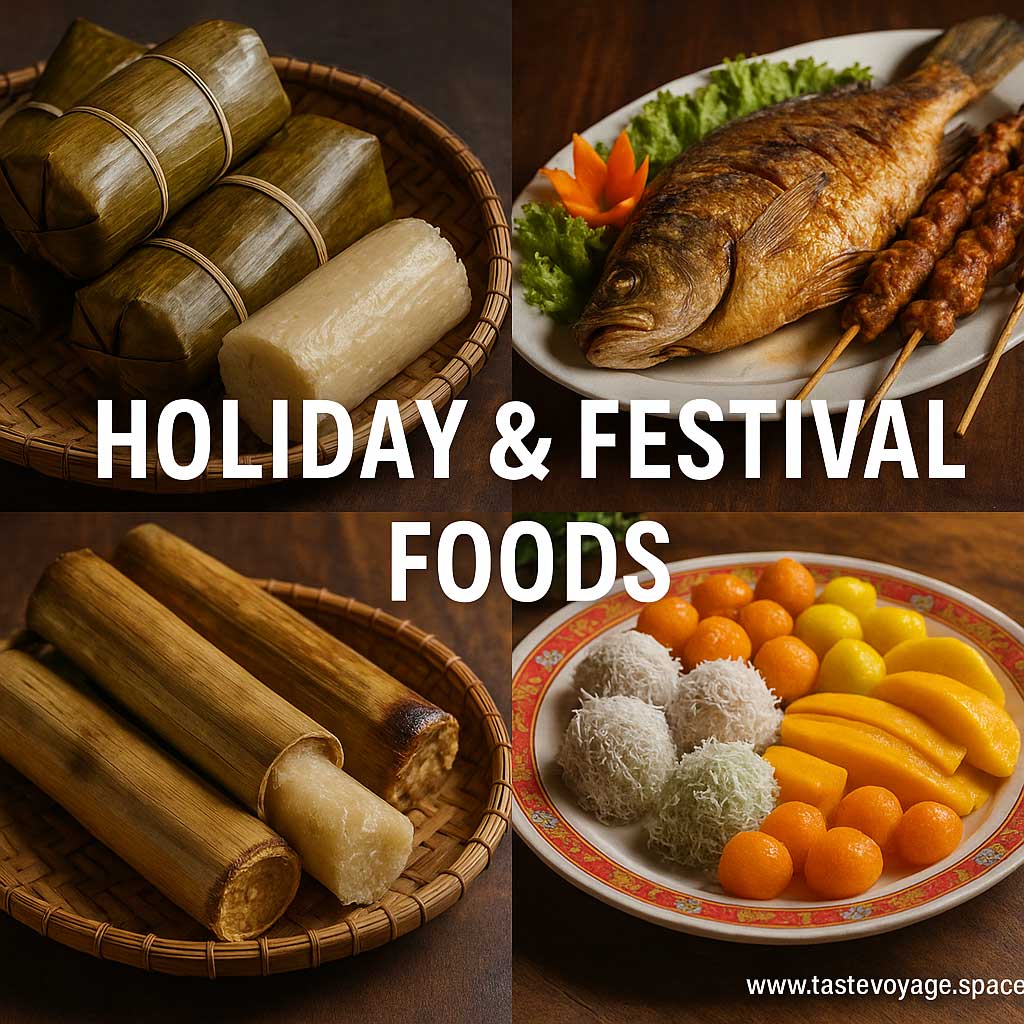Authentic Cambodian Wedding Food Ideas You Must Try
Travel the World Through Food >> Cambodian Cuisine>>Holiday & Festival Foods>> Authentic Cambodian Wedding Food Ideas You Must Try
Authentic Cambodian Wedding Food Ideas You Must Try
Authentic Wedding Food (Cambodian Style): A Celebration of Heritage and Flavor
Cambodian Cuisine offers a vibrant tapestry of flavors, traditions, and stories. Among these culinary treasures, the traditional wedding feast stands out as a shining example of Cambodia’s rich cultural heritage. Known as “Authentic Wedding Food (Cambodian Style),” this special cuisine embodies community, celebration, and the artistry of local ingredients. It’s more than just a meal—it’s a meaningful ritual that connects generations and showcases Cambodia’s culinary identity.
The Cultural Significance of Cambodian Wedding Food
In Cambodia, wedding food is a mirror of the country’s values. The dishes served during weddings symbolize prosperity, unity, and respect for tradition. These meals often feature an extensive array of dishes, each carefully prepared to honor the occasion. They serve as a gesture of gratitude to guests and family members, emphasizing hospitality and communal harmony.
The wedding feast acts as a bridge between the old and the new. It preserves ancient recipes while adapting to modern tastes. This culinary tradition reflects Cambodia’s commitment to honoring its roots while celebrating new beginnings. The dishes are typically prepared with fresh, local ingredients, highlighting the land’s bounty and the importance of sustainability in Cambodian food culture.
Culinary Highlights of Cambodian Wedding Food
Cambodian wedding cuisine is renowned for its harmonious blend of flavors—sweet, sour, salty, and umami—crafted to delight the palate. Common features include aromatic rice dishes, flavorful curries, and fresh vegetable accompaniments. Fish and seafood often take center stage, symbolizing abundance and prosperity, given Cambodia’s proximity to the Mekong River and the Tonle Sap Lake.
Staples such as Kuy Teav (noodle soup), Samlor Korkor (a hearty vegetable and meat stew), and Lok Lak (marinated beef stir-fry) are frequently served, each carrying its own cultural meaning. These dishes are often prepared with Coconut milk, lemongrass, turmeric, and other fragrant herbs, exemplifying the depth of Cambodian flavors.
Desserts also play a vital role, with treats like Num Ansom (banana leaf-wrapped sticky rice) and Kralan (bamboo sticky rice) offering sweetness and symbolism. These desserts are not only delicious but also rich in cultural symbolism, representing fertility and good fortune.
The Art of Presentation and Sharing
In Cambodian wedding celebrations, presentation and sharing are integral. Large communal dishes encourage gathering and foster a sense of unity. Traditionally, food is served family-style, with everyone partaking from shared platters. This practice emphasizes togetherness and mutual respect.
The visual appeal of Cambodian wedding food is equally important. Vibrant colors, carefully arranged ingredients, and decorative garnishes reflect the craftsmanship and pride of the hosts. The act of sharing food strengthens bonds and reinforces social harmony, making the feast an unforgettable experience.
Preserving and Celebrating a Timeless Tradition
Today, Cambodian wedding food continues to be a vital part of cultural celebrations. It offers A Taste of history, community, and artistry. By preserving these culinary traditions, Cambodia honors its past while embracing the future.
For food enthusiasts and cultural explorers alike, experiencing Cambodian wedding cuisine is a journey into the heart of Cambodia’s soul. It invites us to appreciate the depth of local flavors, the significance of shared meals, and the enduring beauty of cultural heritage.
Conclusion
Authentic Wedding Food (Cambodian Style) is more than a collection of dishes; it is a celebration of life, tradition, and community. This culinary tradition reflects Cambodia’s vibrant culture and its reverence for community bonds. Whether you are a curious traveler or a passionate foodie, embracing this wedding feast offers a meaningful glimpse into Cambodia’s rich heritage. It’s a delicious reminder that food is a powerful way to connect with history, foster relationships, and celebrate life’s most special moments.
